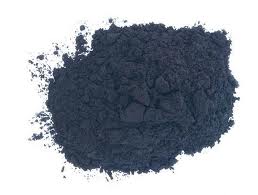You’ve probably heard about activated charcoal (or activated carbon) and all of the amazing things it can do. But what about regular charcoal? Is there a difference? And if so, what are they?
In this article, we will explore the differences between activated charcoal and charcoal, and ask if you can interchange them. We will also take a look at some of the uses of activated charcoal. Stay tuned!
Main Differences in Activated Charcoal and Charcoal
So, what’s the difference between activated charcoal and regular charcoal?
Activated charcoal or activated carbon is more porous than regular charcoal. This means that it has a larger surface area, which allows it to absorb more toxins.
Finally, activated charcoal is purer than regular charcoal.
Activated Charcoal is More Porous
As we mentioned, activated charcoal is more porous than regular charcoal. This is because the process of making activated charcoal creates tiny pores in the carbon.
These pores allow activated charcoal to absorb more toxins than regular charcoal. In fact, one gram of activated charcoal has a surface area of over 32,000 square feet!
This means that it can absorb toxins, bacteria, and other contaminants from the surface of your skin.
Activated Charcoal is Purer
Activated charcoal is also purer than regular charcoal. This is because it is made with a process that removes impurities from the carbon.
This results in a product that is free of chemicals and other contaminants.
Regular charcoal, on the other hand, still contains a lot of wood smoke. Some charcoal is even made with chemicals and other additives that would make it harmful to digest, so it certainly wouldn’t be safe to use this charcoal as a filter.
Can You Interchange Activated Charcoal and Charcoal?
Now that we know the differences between activated charcoal and charcoal, you might be wondering if you can use them interchangeably.
The answer is no.
While activated charcoal can be used for many things, such as filtering water or whitening teeth, regular charcoal cannot. This is because normal charcoal is not as effective at absorbing toxins and other contaminants, and because regular charcoal may even contain toxins and contaminants.
Do not try to use your BBQ charcoal for filtering water, as this burning charcoal is not intended for such use.
What is Charcoal, Anyway?
Now that we’ve answered the question “what’s the difference between activated charcoal and regular charcoal,” you might be wondering what charcoal is.
Charcoal is a black substance that is made by burning wood or other organic materials, such as coconut shells. The resulting product is a porous, lightweight substance that can absorb toxins and other contaminants.
Activated charcoal is just charcoal that has been more processed and, overall, more cleaned up.
Uses for Activated Charcoal
Activated charcoal has a variety of uses. Here are just a few:
- Activated charcoal can be used to filter water because its pores allow it to absorb moisture and chemical additives. This is true both for drinking water and for aquariums to remove odors.
- Activated charcoal powder can be used to whiten teeth, lightening the color of the enamel.
- Activated charcoal powder can be used as a facial mask, pulling excess sebum out of pores.
- Activated charcoal can be used to treat poisonings, though should be done with the advice of a medical professional.
- Activated charcoal can even be used to treat an upset stomach and can often be found at your local pharmacy.
Note: Remember that burning carbon-rich materials always carries a fire risk with it
Do you have any other questions about activated charcoal? Can you think of any other uses for activated charcoal or ordinary charcoal? Let us know in the comments below!


[lasso rel="emergency-preparedness-more-a-manual-on-food-storage-and-survival-2nd-edition-revised-and-updated" id="35334"]